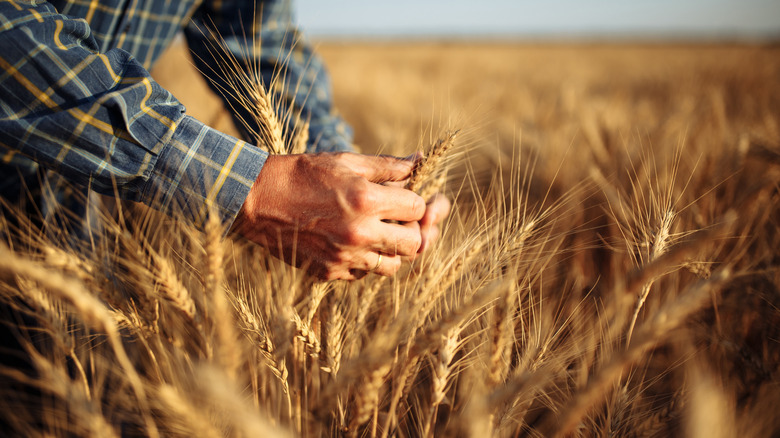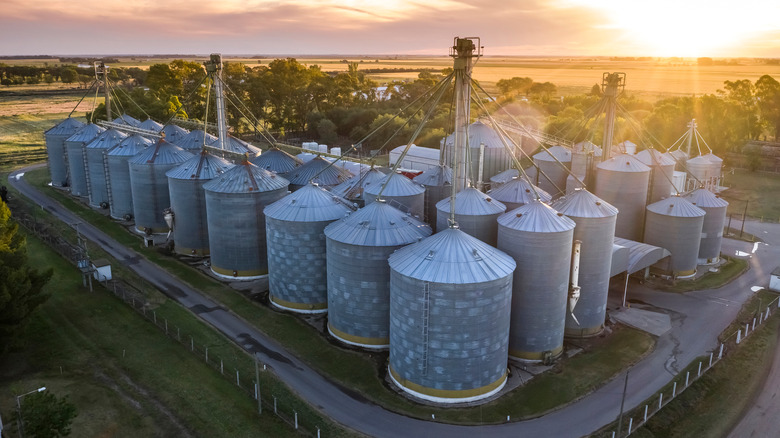Argentina May No Longer Be The Answer To The Global Wheat Shortage
The world changed in many ways with Russia's invasion of Ukraine, which led to a shortfall of grain in worldwide markets. After all, commodities such as bread and flour depend on grains from top exporters including Russia and Ukraine (via USDA). The conflict between the two wheat-exporting countries resulted in both disruptions and significant price hikes, explains Reuters, leading to hopes that other countries would step up as stable sources of wheat exports — including Argentina.
According to farmdoc daily, a publication of the Department of Agricultural and Consumer Economics at the University of Illinois, Argentina is the primary South American wheat-producing country and exports up to 65% of its wheat. It also provides 7% of global wheat exports. The country planned to increase wheat production this year in response to the war in Ukraine. This hopeful expectation of increased Argentine wheat capacity comes from the record 22.4 million tons of wheat harvested in Argentina in 2021 and 2022, notes Reuters. But obstacles including weather and input prices may tell a different story as the season progresses.
Argentina struggles to meet global wheat demands
As Argentine wheat grower Juan Francisco Arregui told Reuters, the current season for wheat is complicated. As with other crops in what's referred to as Argentina's breadbasket farmlands, grains such as wheat suffer from weather impacts, which, unfortunately, include drought this year. Though spring provided enough rain to plant wheat fields, there's no guarantee the crops will thrive or even survive. At least two months of no rainfall and dim weather forecasts are dashing expectations that Argentina could be the answer to the global wheat shortage. But that's not all.
Predicted by farmdoc daily in April 2022, incentives for increasing wheat production were potentially compromised by high input prices, including the cost of fertilizer. This concern was confirmed by Reuters' report, which said that Arregui and fellow farmers are dedicating more farmland to soybeans, partially because of the sharp increase in fertilizer costs. The other factor at play is the uncertainty over political effects of the Russian war in Ukraine and any potentially related export rule changes or implemented bans.
Perhaps inevitably, the Buenos Aires and Rosario grain exchanges in Argentina have modified their plans for growing wheat in the coming months, per Reuters, and said they could make additional cuts based upon the weather they are faced with.

